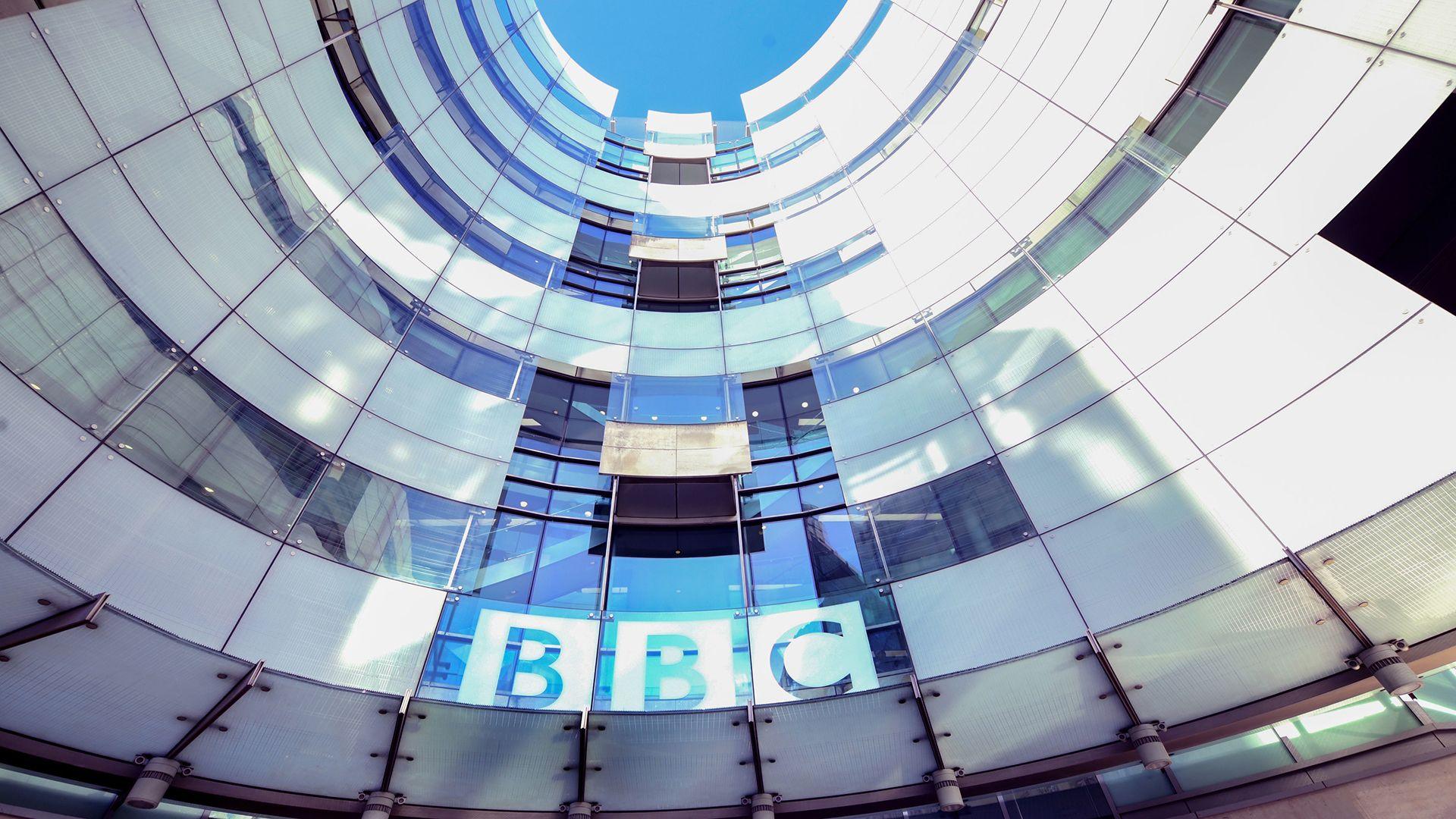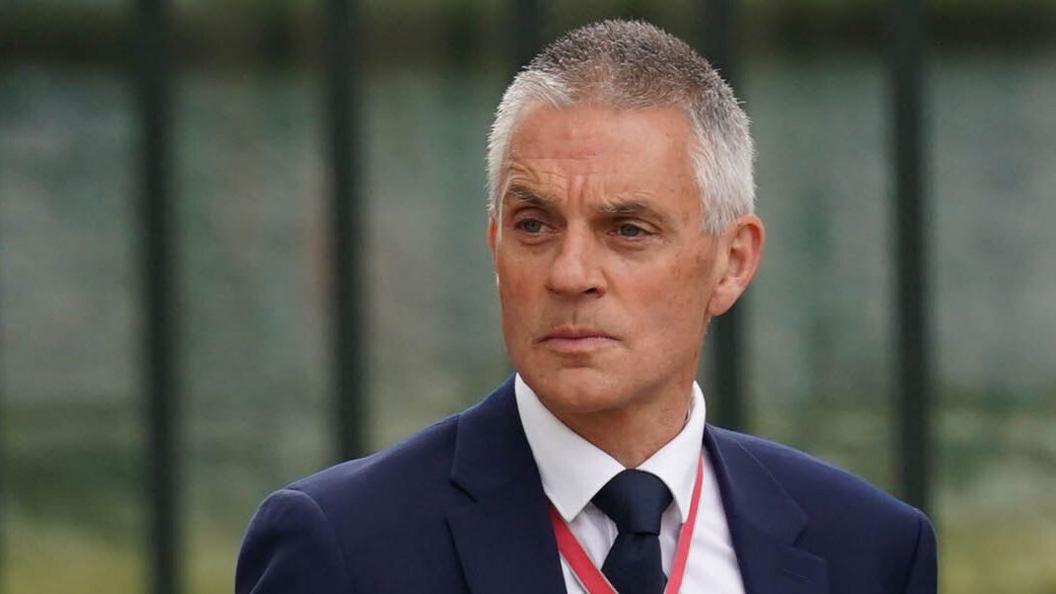BBC not institutionally biased, says News CEO after resigning
'BBC is not institutionally biased', says outgoing BBC News CEO
- Published
BBC News CEO Deborah Turness has said the corporation "is not institutionally biased" after resigning following criticism that a Panorama documentary misled viewers by editing a speech by Donald Trump.
"Mistakes are made" but the BBC's journalists are "hardworking people who strive for impartiality," she told reporters outside the broadcaster's London headquarters in her first public remarks since announcing she was stepping down.
Both Turness and BBC director general Tim Davie resigned on Sunday in an unprecedented move after criticism of the programme.
The Telegraph published details of a leaked internal BBC memo, external that suggested the US president's speech had been edited so he appeared to explicitly encourage the Capitol Hill riot in January 2021.
The BBC has not responded in detail to the concerns raised in the internal memo published by the newspaper.
Trump welcomed the resignations and said the report had exposed "corrupt journalists".
Asked about his remarks, Turness said: "Our journalists aren't corrupt and I will stand by their journalism."
Speaking outside Broadcasting House, she said it had been "the privilege of my career to serve as the CEO of BBC News and to work with our brilliant team of journalists".
"I stepped down over the weekend because the buck stops with me. But I'd like to make one thing very clear, BBC News is not institutionally biased.
"That's why it's the world's most trusted news provider."
Asked about the concerns raised in the leaked memo, she said: "I'm sure that story will emerge."
Announcing her resignation on Sunday evening, she said it was because the Panorama case had "reached a stage where it is causing damage to the BBC".
In his own statement, Davie said the "current debate" around the corporation was not the only reason for his decision to step down, but "understandably contributed" to it.
Katie Razzall: A seismic moment that shows rift at top of BBC
- Published9 November
Why has Tim Davie resigned and what was the Trump documentary edit?
- Published14 November
Tim Davie: A 20-year BBC career that finally ran out of road
- Published9 November
In Trump's speech on 6 January 2021, he said: "We're going to walk down to the Capitol, and we're going to cheer on our brave senators and congressmen and women."
In the Panorama programme, he was shown saying: "We're going to walk down to the Capitol... and I'll be there with you. And we fight. We fight like hell."
The two sections that were stitched together were originally more than 50 minutes apart.
The internal memo was written by Michael Prescott, a former independent external adviser to the broadcaster's editorial standards committee, who left the role in June.
As well as the Panorama edit, his memo raised concerns about a lack of action to address what it described as "systemic problems" of bias in BBC Arabic's coverage of the Israel-Gaza war.
It also expressed concerns about the broadcaster's coverage of trans issues, suggesting it was effectively "censored" by specialist LGBT reporters who promoted a pro-trans agenda.
Dame Caroline Dinenage, who chairs the Culture, Media and Sport Committee, said the resignations had been avoidable and claimed Davie had "ignored" the memo.
"He just didn't take it seriously until it was too late," the Conservative MP told BBC Radio 4's Today programme. Davie has not addressed these claims.
"There seems to be a muscle memory at the BBC as to how to badly respond to any kind of editorial crisis or scandal," Dinenage added, citing two recent controversies - the failure to disclose that the narrator of a documentary about Gaza was the son of a Hamas official and the broadcast of punk duo Bob Vylan's Glastonbury set.
"Replacing Tim Davie isn't going to sort that out."
But David Yelland, the former editor of the Sun newspaper, claimed that the resignations were the result of a "coup".
"Worse than that, it was an inside job," he told the Today programme, claiming there were people close to the BBC and on the board who had "systematically undermined" Davie and his team.
"What happened yesterday didn't just happen in isolation," he said.
Yelland said he did not blame BBC chair Samir Shah as an individual, but added that there had been "a failure of governance" from the board.
Shah is expected to publish a letter addressing the resignations later on Monday.
- Published9 November

- Published9 November
